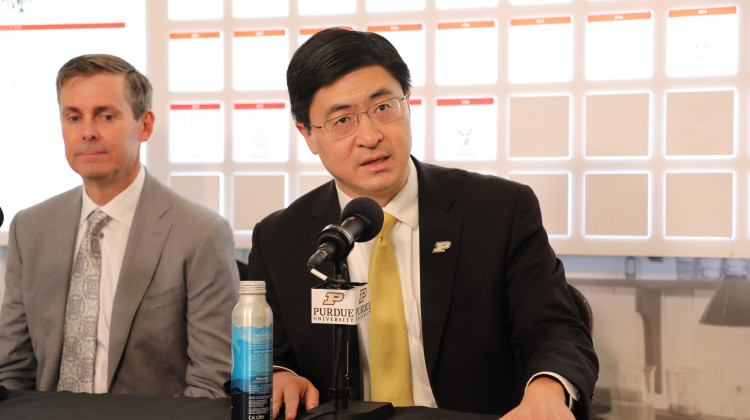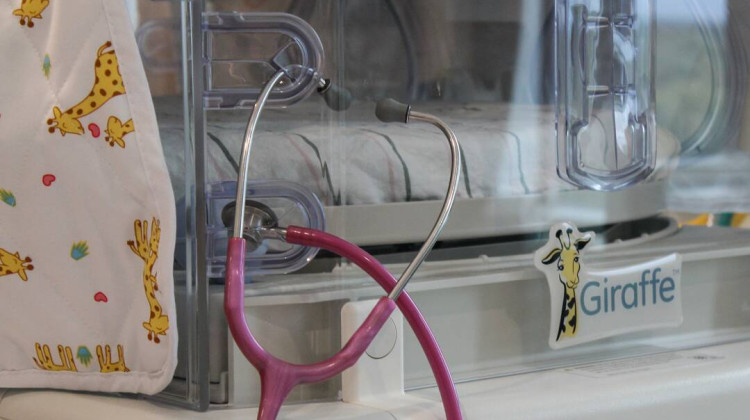
Lilly CEO David Ricks (left) and Purdue President Mung Chiang (right) announced a $250 million partnership on Friday.
Ben Thorp / WFYIEli Lilly and Company on Friday announced it would expand a partnership with Purdue University. The pharmaceutical giant plans to pump around $250 million into research initiatives over the next eight years.
Purdue President Mung Chiang said it may be the largest industry-academic agreement of its kind in the United States.
The Lilly announcement will extend an agreement aimed at accelerating medicine development and bolstering the workforce-talent pipeline.
Purdue, like many universities, faces uncertainty as the Trump Administration looks to limit or cut funding through a variety of means.
“This may not be the only part of the future of research, but it certainly is an increasingly important part, and we're very proud of [a] nationally leading agreement,” said Chiang.
The funding will also support research into the use of artificial intelligence (AI) tools in drug discovery and in scaling manufacturing capacity.
“It's probably early to say what will work and when we will have a medicine, which I can buy at the pharmacy that's made this way but, at a minimum, I can say it's highly complementary already in accelerating our early phase discovery,” said Dave Ricks, CEO of Eli Lilly.
Asked whether the AI investments might mean a loss in jobs at the company, Ricks said he didn’t see it that way.
“Whether we do this here in America, which we would like to do, or somewhere else, the future of manufacturing is a more automated future,” he said. “ There's [a] good reason for it, not just for efficiency, but also for making quality medicines and being able to scale things quickly.”
Additionally, the program will look to accelerate potential treatments from phase one clinical studies to regulatory approval.
The program will also work with existing partnerships between Purdue and Lilly, including the Lilly Scholars program, which offers full tuition to 75 to 100 students each year.
The funding extends an existing program that’s set to expire in 2027, pushing it out to 2032.
Contact Health Reporter Benjamin Thorp at bthorp@wfyi.org.
 DONATE
DONATE







 Support WFYI. We can't do it without you.
Support WFYI. We can't do it without you.